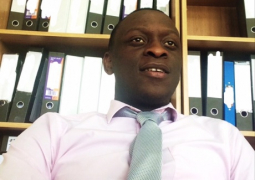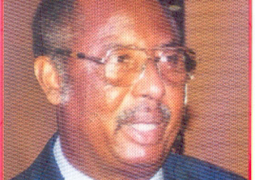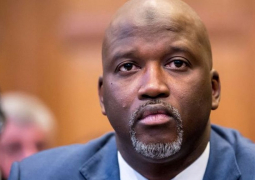
The question, “Where were you?” has become a political cliché in The Gambia. At a 2018 press conference, Gambia’s President Adama Barrow lashed out at intellectuals, and asked where they were when he and his supporters stood up to get rid of former President Yahya Jammeh. But I want to use pose the question in a different sense, namely, with regards to music, because I REALLY love music. And I can’t help it because it is hard-wired onto my brain.
For as long as I can remember, I have dreamed music with various musical instruments, and of various genres that I have never heard before. I have many times dreamed of Youssou Ndour singing, or Jimi Mbaye (the world-class guitarist of Mr. Ndour’s band, Super Etoile de Dakar) playing riffs that I have never heard before. I have also dreamed jazz trumpet sounds I have never heard before, and that I swear were by Miles Davis. Ditto Steel Pulse the conscience of UK reggae.
Music follows me around when I’m awake too, and it’s not unusual for me to start hearing a rhythm or a beat upon hearing ordinary, everyday sounds. Besides, songs often pop up in my head, and I find myself singing silently. If I could record my flares of musical creativity, I could probably release an album every week.
One day in 2015 when I was on the Hajj, I broke into a song as soon as I got out of a perimeter gate to the Al-Masjid an-Nabawi, the Mosque of the Prophet Muhammad, PBUH in Madinah, Saudi Arabia. It just happened, like I had just yawned or sneezed. On the other hand, I remember thinking to myself that Allah must have a bonus for music lovers on the Hajj because they have an additional appreciation of the golden voices of the Imams and Muezzins in Madinah and the Masjid al-Haram in Makkah.
Music often takes me back in time to places I have been in my life. I can start with the music of the former Bembeya Jazz National of the Republic of Guinea and who were led by the late, great Aboubacar Demba Camara. To this day, their hit songs such as Armée Guinéenne, Beni Barale, and N’borin take me back to Kaur of the early 1970’s when Najib’s Cinema would regularly play Bembeya songs on their loudspeakers before they start showing their films.
I was a student at Armitage Secondary School, a boarding school in Georgetown (now Janjanbureh) in the early ’70s. In lieu of doing chores such as cleaning our dormitories and environs, I was assigned to water the flowers of our Vice Principal, the late Anthony “Tony” Blain. I recall that on my way to or from Mr. Blains house, I often heard Black Magic Woman, and Samba Pa Ti by Santana wafting out of the house of one of our teachers, Raymond Sock. To this day, Black Magic Woman takes me back to my Armitage days and the music that poured out from the house of Mr. Sock, now a Justice of the Supreme Court Judge of The Gambia.
I went to Gambia High School (GHS) in Banjul after Armitage and in the summer of 1975, we had a Passing Out (graduation) picnic. I remember one of my friends showing me an album and saying: “This guy is going to displace Jimmy Cliff as the world’s reggae superstar.” The album was Natty Dread by none other than Bob Marley and the Wailers. And to paraphrase Bob himself in his song, Zimbabwe, I can say: “brother you [were] so right!”
A year later, Stevie Wonder came out with his landmark double album Songs in the Key of Life. I remember the album because one of my classmates at GHS wrote the lyrics of its songs, Pastime Paradise, on the blackboard (chalkboard to Americans). Pastime Paradise is a musical gem and takes me back to our GHS classroom every time I hear it.
Fast forward to the Summer of 1979 when I was at the University of Nigeria, Nsukka. A Gambian friend of ours who also was a student at Fourah Bay College, Sierra Leone, came to visit us during the holidays. He brought along Let Me Love You, what was then the latest hit from Bunny Mack of Sierra Leone. We threw a loud party in our dormitory, and I think of that party every time I hear that song!
Another song that takes me back to a place, is Sultans of Swing, by the former British rock band, Dire Straits. One sunny Spring morning in the mid-1980’s on the campus of Montana State University, Bozeman (where I did my Masters degree), I was walking from my dormitory, Roskie Hall, and was hit by the sound of Sultans of Swing coming from the upper floors of the 11-storey South Hedges Hall dormitory. The song, whose top two videos and audio have had 496 million views and listeners so far, still takes me back to that morning in Bozeman.
In 1991, I saw Whitney Houston perform live at the Milwaukee, Wisconsin, Summerfest (which claims to be the world’s largest music festival). I had, and since then have never seen anything like that crowd, or Whitney’s performance that night. She belted out her hits like I Wanna Dance With Somebody, and those songs still take me back to Milwaukee.
Milwaukee is about one hour’s drive from Madison, Wisconsin, where I where I did my Ph.D. I had the fantastic opportunity in 1993 to participate in drumming classes by the legendary Senegalese master drummer, El Hadj Doudou Ndiaye Coumba Rose, who came to University of Wisconsin(UW)-Madison on a visiting artist program. At the end of the classes, we were honored to do a concert with him, taking me back to my Mbalax roots.
Youssou Ndour’s Womat, came out in 1994 when I was writing my dissertation at UW-Madison, mostly at night. One evening, I sat in my car to wait for Gorgui to end, because I so loved Mbaye Gaye Faye’s drumming of the Gintay beat (based on a once popular song in Senegal and The Gambia) 4 minutes and 18 seconds into Gorgui. To this day, Gorgui takes me back to Madison.
As I drove back to Madison from Mayland in Winter 1995, I listened a lot to El Hadj Samba Diabaré Samb and Orchestra Baobab, both of Senegal. El Hadj Samba was renowned for his mastery of the xalam, while Baobab has been an icon of Senegalese popular music for decades. I still remember listening to El Hadji Samba, and Baobab’s Ken Dou Werente album late that night above the hum of my car’s engine as I tore through America, and feeling every minute being drawn closer to my cultural roots.
In the Summer of 1998, I was listening to Lemzo Diamono one morning as I weaved through traffic in Chicago, Illinois, on my way to attend an Internet conference there. I remember thinking to myself when I heard Pape Diouf singing Co Co Rico that “this guy is going to make it big!” Twenty three years later, and Pape Diouf is one of Senegal’s hottest artists.
One group whose music also takes me back to Madison is the Mexican rock group, Maná. In 2000, I worked in Madison with a Mexican-American who played their music, and as soon as I heard them, I asked him: who’s this? He gave me a copy of their CD, and I have been a big fan of them since. Maná is Latin America’s biggest act, and were appointed FAO Goodwill Ambassadors in 2003.
Eighteen years after I saw Whitney Houston perform in Milwaukee, she provided the soundtrack to my 13-hour overnight flight in 2009 between Hong Kong and Johannesburg, South Africa. I was traveling from an ICANN meeting in Seoul, South Korea, and after catching some sleep between Seoul and Hong Kong, I worked all night on a paper I was to present the following morning upon arrival in Johannesburg. I was in Business Class, so I could keep my laptop charged, and listen a lot to I Look to You, Whitney’s last album before her death in 2012.
In October, 2011, I was in Dakar to attend the ICANN 42 meeting. I went with some friends to see Youssou Ndour and his band at his night club, Thiossane which some call the temple of Mbalax. It was a fantastic night and Youssou seemed like a lion in his den, playing with his cubs. The band performed the hit song, Xale Bi, and when it was released later that year in the Mbalakh Dafay Wakh album, I felt like I was there when he was cooking it at Thiossane!
And I could go on and on, but I’ll save the rest for later. I hope this sampler the music in my life has also taken you to places. I’m sure many of you have had the experience of hearing a song and thinking of a place you first heard it, and/or strongly associate with the song. So, if someone asks, “Where were you?” you can tell them exactly where you were when you first heard that song.




